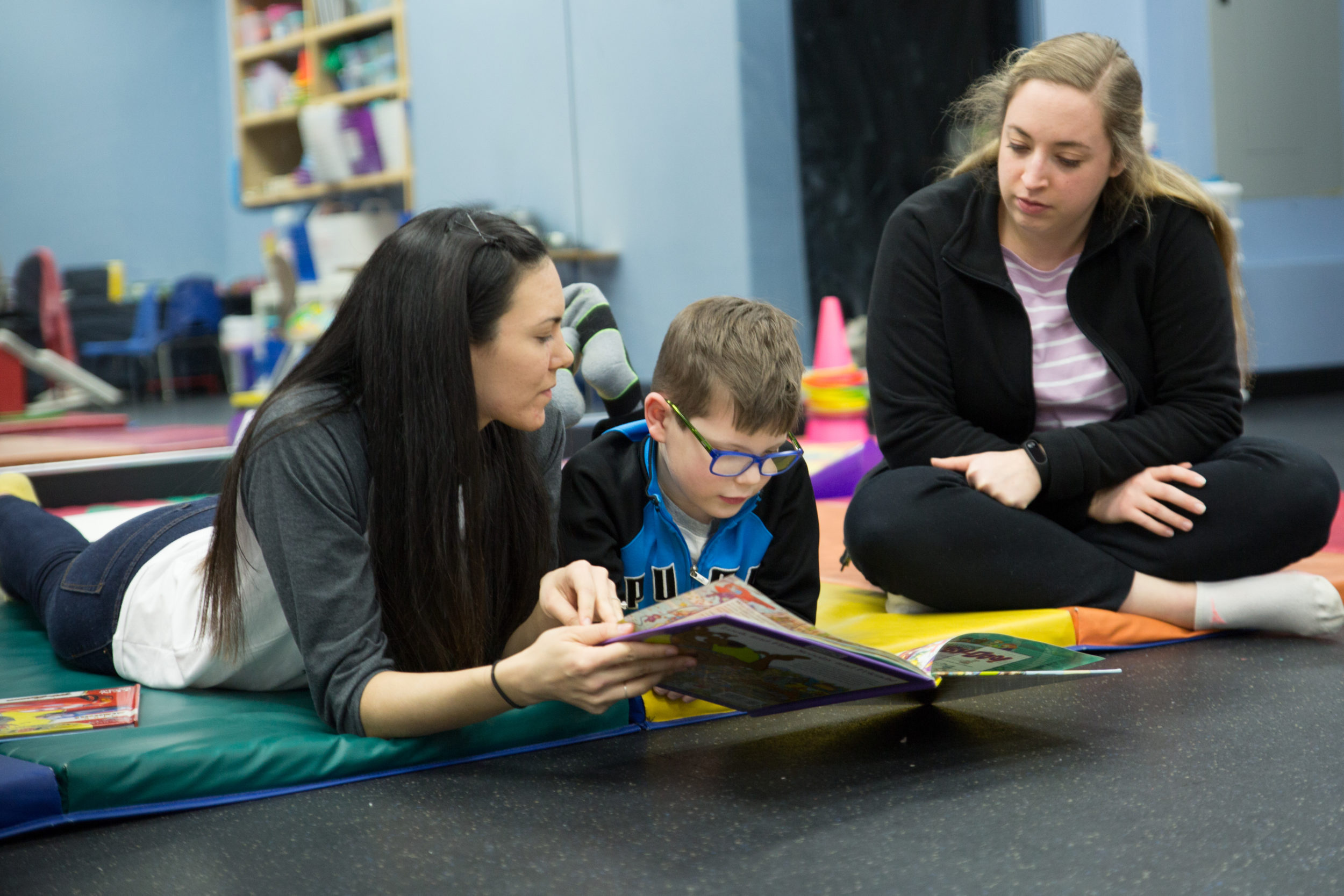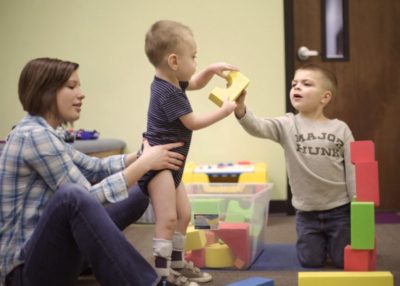FOCUS – ABA After-School Program
FOCUS – ABA Therapy Program Overview
FOCUS (For Our Community Understanding and Success) is an after-school ABA therapy program for school-aged children with autism that are looking to strengthen age-appropriate social skills and develop more community awareness. The program is a follow-up to our daytime ABA therapy programs IGNITE and RISE. It is meant to support school-aged children who attend a traditional classroom environment in the day.
FOCUS ABA Therapy Program Goals
Strengthen Age-Appropriate Social Skills
A child’s FOCUS ABA therapy program curriculum is centered on structured small group activities. A primary goal of FOCUS is to prepare a child for the social challenges that they face in their current stage in life. As children enter middle childhood or adolescence, their social interactions require more complex skills. Some of these social skills include:
- Learning to cooperate with peers on a common task
- Handling competitiveness and losing
- Developing self-calming strategies when stronger emotions present themselves (e.g. anger)
- Developing tactics to manage and express emotions productively
- Dealing with not getting one’s way when choosing a role, activity, or task
- Communicating with peers in ways that build relationships
Some of the structured FOCUS activities where these advanced social skills are practiced include:
- Ice breakers
- Scavenger hunts
- Escape rooms
- Competitive games
- Group calming activities
- Emotion sharing activities
While these activities are intended to be fun for the kids they also are structured in a way that challenge children to practice key social skills.
Develop Community Awareness

The FOCUS ABA therapy program also emphasizes building community awareness. Participants will practice conversational skills and social exercises in the context of the broader community. For example, the group may be asked to interview a public service professional (e.g. firefighter) or participate in a community project day activity.

Between group activities, participants will be taught more advanced ABA therapy tactics such as calming strategies that help them regulate their emotional responses. This helps children return to baseline behavior and stress levels after partaking in a stimulating activity.
How Activities Interact With ABA Therapy
Every child in this ABA therapy program is 1-on-1 with an ABA therapist. They have their own ABA therapy programming goals that are incorporated into the broader FOCUS therapy program. Every day, progress on these individualized goals is taken to ensure progress is being made on ABA therapy goals.
FOCUS allows therapists to practice each child’s goals in a group setting with similarly aged peers. The group and social activities become a medium through which each child’s individualized programming goals are worked on. For example, communication challenges can be worked on with another peer in a group setting instead of only with the therapist. Every therapist knows their child and what their goals are. Throughout each activity, those goals are included in how the children participates, is directed, and taught. The FOCUS therapy program is really about providing the social backdrop required to practice age-appropriate, real-life social skills in a safe environment.
